
A Two-Week Tech Startup Bootcamp on Digital Health
August 18 – 29, 2025 (Weekdays Only) | Hong Kong
Are you passionate about technology, healthcare, and longevity? Students from MIT and Hong Kong will come together to form teams and develop a tech-enabled venture pitch focused on digital health in just two weeks! This unique bootcamp offers the chance to learn from leading faculty at HK and MIT, as well as industry experts, providing valuable insights into business processes while addressing a specific challenge in the digital health sector, with exposure to Asia. Together, you will tackle critical challenges and develop innovative digital solutions to transform the healthcare landscape and promote longevity.
You will discover weaknesses you never knew you had and strengths that will help you soar. Along the way, you will make lifelong friends and become part of an international community. Don’t worry about program expenses – we cover flight and accommodation for MIT Students! But this bootcamp is not edu-tourism and don’t let that be the reason you apply.
This bootcamp will operate 100% in-person, with MIT students flying into Hong Kong to attend the bootcamp in-person. Spots are very limited, so be sure to apply soon!
Our Partners
We are excited to partner with The University of Hong Kong (HKU) and The Laboratory of Data Discovery for Health (D24H) for this bootcamp.


Faculty Team
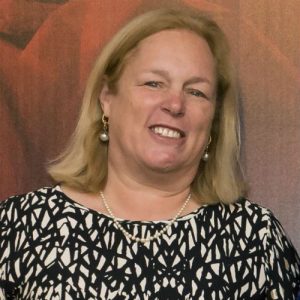
Dr. Martha L. Gray
J. W. Kieckhefer Professor of Health Sciences & Technology; Professor of Electrical Engineering & Computer Science, MIT
Dr. Gray has a multifaceted career in which she has built programs to drive biomedical technology innovation, conducted research to better understand and prevent osteoarthritis, led a preeminent academic unit, and served the profession through work with organizations and institutions. Trained in computer science and electrical and biomedical engineering, and serving as an MIT faculty for three decades, she has held numerous leadership positions. For 13+ years, she directed the Harvard-MIT Division of Health Sciences and Technology (HST), an academic unit with multiple research and training programs for careers in medicine, business, and research. Dr. Gray currently directs MIT linQ which operates several multi-institutional ventures focus on accelerating and deepening early-career researchers’ potential for impact. Over the course of these efforts, she and her team have established a principled methodology for needs identification and opportunity development, and an organizational model that fosters a vibrant multi-stakeholder community necessary for sustained local and global impact.
Professor Gray’s current research builds on her experience directing HST and aims to establish validated approaches to accelerate biomedical technology innovation. Through a novel approach to research development that engages young talent and a diverse group of stakeholders from the academic, medical, and business sectors, she has spearheaded the development of numerous projects that have produced intellectual property flow at more than twice the volume and pace normally seen by MIT’s technology licensing office, brought numerous researchers into new areas, and attracted follow on funding through public and private sources.
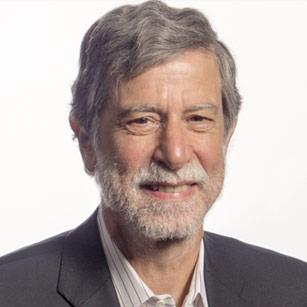
Prof. Charles G. Sodini
Faculty Director, MIT Node;
LeBel Professor of Electrical Engineering, MIT
Charles G. Sodini received his BS degree in Electrical Engineering from Purdue University, in 1974, and his MS and PhD degrees in the same from the University of California, Berkeley, in 1981 and 1982, respectively. He was a member of the technical staff at Hewlett-Packard Laboratories from 1974 to 1982, where he worked on the design of MOS memory. He joined the faculty of the Massachusetts Institute of Technology, in 1983, where he is currently the LeBel Professor of Electrical Engineering. His research interests are focused on medical electronic systems for monitoring and imaging. These systems require state-of-the-art mixed signal integrated circuit and systems with extremely low energy dissipation.
Professor Sodini’s research interests are focused on medical electronic systems for monitoring chronic disease and imaging, with emphasis on ultrasound technology and image processing. These systems require state-of-the-art mixed signal integrated circuit and systems with extremely low energy dissipation. The requirements of the systems dictate the areas in which innovation must take place. This approach allows students to understand and play a role in the big picture while simultaneously concentrating on specific innovations in a tightly focused project. The program is a fertile ground for students to learn and appreciate the importance of breadth across many disciplines for systems optimization as well as depth in their particular project. He is the co-founder of the Medical Electronic Device Realization Center that is revolutionizing medical diagnostics by bringing healthcare directly to the individual and creating enabling technology for future information-driven healthcare systems.

Prof. Joshua Ho
Associate Professor, School of Biomedical Sciences,
LKS Faculty of Medicine, HKU
Professor Ho is an Associate Professor in the School of Biomedical Sciences at the University of Hong Kong (HKU). He completed his BSc (Hon 1, Medal) and PhD in Bioinformatics from the University of Sydney, and undertook postdoctoral training in at Harvard Medical School. He is an expert in developing scalable computational methods to analyse single cell omic data, metagenomic data, and digital health data. Professor Ho has over 139 publications, including first or senior papers in leading journals such as Nature, Nature Communications, Genome Biology, Nucleic Acids Research and Cell Systems. Professor Ho is also currently the Programme Co-Director of BSc (Bioinformatics), Deputy Director of EdTech (AI), Academic Lead of the Bioinformatics Core of the Centre for PanorOmic Sciences (CPOS) at HKU, and Lead Scientist of Laboratory Data Discovery for Health. He is an Executive Editor of the journal Biophysical Reviews. He co-founded a digital health company Vitome Limited.
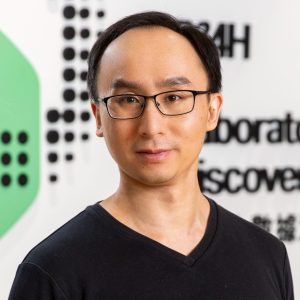
Prof. Joseph Wu
Managing Director, Laboratory of Data Discovery for Health (D24H); Professor, School of Public Health,
LKS Faculty of Medicine, HKU
Professor Joseph Wu is a professor in the School of Public Health. He specialises in mathematical and statistical modelling of diseases. His research aim is to develop practical analytics and strategies for disease control and prevention. He has worked on COVID-19, seasonal and pandemic influenza, hand-foot-and-mouth diseases, HPV, MERS, yellow fever, cervical cancer, colorectal cancer and breast cancer. He earned his PhD in Operations Research and BS in Chemical Engineering from MIT.
Professor Wu is the managing director of the Laboratory of Data Discovery for Health (D24H). His research programme in D24H aims to develop AI technology and tools for global and personal health protection, with a particular focus on clinical NLP, epidemic nowcasting/forecasting and vaccine hesitancy.
Professor Wu is the director of HKU’s first Massive Open Online Courseware (MOOC) Epidemics which has had more than 50,000 people enrolled since its first launch in 2014. He is the director of two Croucher Summer Courses (Vaccinology and Vaccine Hesitancy).
Professor Wu is co-editor-in-chief of Epidemics and an associate editor of PLOS Computational Biology and PLOS Neglected Tropical Diseases. He is a Fellow of the UK Faculty of Public Health, and a member of the WHO Advisory Committee on Immunization and Vaccines-related Implementation Research (IVIR-AC) during 2018-2023.
MIT Node Instructional Team
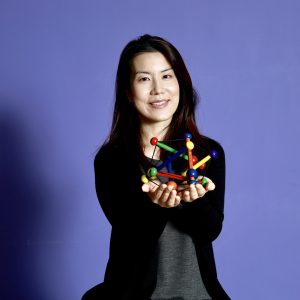
Marina Chan
Executive Director, MIT Hong Kong Innovation Node
Marina Chan oversees educational activities for learners across secondary, tertiary and professional education. Leveraging on innovation best practices developed by MIT, Marina spearheads efforts to foster the entrepreneurial mindset through the venture creation process. Her work includes helping teachers integrate technology to create student-centered, inquiry-based learning environments, and building career-ready skills for young people. Prior to joining MIT Node, Marina worked at Merrill Lynch as vice president of client management in the Asian equity business where she earned her CFA charter. Previous to that, she began her career at Nortel Networks. Marina serves on the board of Hong Kong Red Cross schools and is a member of the Dean’s Leadership Council at the Harvard Graduate School of Education. She holds a master’s degree in education from Harvard University and a bachelor’s degree in finance from McGill University.

Nick Tsang
Program Manager, MIT Hong Kong Innovation Node
Nick focuses on supporting entrepreneurship initiatives at the MIT HK Node, where he leverages his skills in technology, product design, and problem-solving to inspire innovation. Before this, he was at the Hong Kong Productivity Council’s Inno Space team for two years, working closely with startups, schools, and students. After that, he also contributed to business development and marketing at an NLP-focused tech startup. Today, he is also channeling his entrepreneurial spirit into founding a startup in the music tech industry. Nick holds a Bachelor’s degree in International Affairs and Political Science from Northeastern University.

Edward Cheng
Technical Manager, MIT Hong Kong Innovation Node
Edward, responsible for education programs and technical curriculum development at the MIT Node, is a passionate advocate of the maker movement. He has hands-on experience in 3D and laser manufacturing technologies, AI, IoT, and VR/AR development. He has served as a STEAM teacher at local schools and gained valuable experience as a Teaching Assistant in the Coolthink program.
Mentors
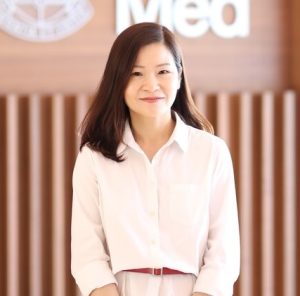
Prof. Doris Yu
Professor, School of Nursing, LKS Faculty of Medicine, HKU
Professor Doris Yu is currently the Professor at the School of Nursing. Professor Yu’s research has focused on gerontology and long-term care.
The ever-escalating burden of disease and disability associated with the rapid aging drives her research work. She has obtained over HK$20 million (USD 2.6 million) external competitive research grants including the General Research Fund, the Health and Medical Research Fund, and the Research Impact Fund for studies on prevalent elderly issues including geriatric symptom management, disease management models for heart failure (HF), brain health promotion, and strength-based care models on dementia care and caregiving. The work was disseminated in over 120 ISI journals including the top-rank journals in nursing, gerontology and cardiology such as European Heart Journal, European Journal of Heart Failure, International Journal of Cardiology, Journal of American Geriatric Society and International Journal of Nursing Studies. She also did research dissemination in the scientific sessions of International Association of Gerontology and Geriatrics, the Gerontological Society of America, European Society of Cardiology, and American Heart Association. The research impact is evident, with her publication cited in the international guideline by the European Society of Cardiology. The developed care models are also integrated into the community nursing service (HF patient empowerment model and transitional care) and aging service (strength-based model) in Hong Kong. She also participates in the grant review exercise for the Research Grant Council (Humanity and Social Science Panel), Public Policy Research Fund, and the Health and Medical Research Fund.
With her enthusiasm in science implementation, she has received over HK$84.5 million (USD 10.8 million) of donations for preparing the society for population aging. She has developed a multi-disciplinary model to promote territory-wide gerontological education in Hong Kong for the general public, informal caregivers and professionals. With the increasing demand on aged care in the health and social service, she also developed an innovative case management model led by nurses, social workers and health coaches to support older adults with deprived social support and network. Her achievement is recognized by the conferment of The Award of Excellence in Social Engagement (Best Impact Award). She is currently the advisor and Social Service Board member of several major non-government organizations in Hong Kong.
For nursing education, Professor Yu has extensive experience in leading under-graduate and post-graduate nursing education. The teaching success is well reflected in her track record of obtaining 13 Teaching Awards, including the Vice-Chancellor’s Exemplary Teaching Award. She has supervised 11 PhD students who had published the work in ISI journals and they have a good post-graduated employment record. She is the panel member of the accreditation team of the Hong Kong Nursing Council and the Specialist of the Hong Kong Council for Accreditation of Academic and Vocational Qualification. Internationally, she served the East Asian Forum of Nursing Scholars Executive Committee for over ten years to support the post-graduate nursing education in the region. She is also the external examiner of the University of Hull for the baccalaureate nursing program. In response to the Hong Kong Policy Address in 2010 about the manpower shortage for aging service, she has successfully pioneered the Bachelor of Gerontology Programme to support the re-engineering of the human resource for the aging service in Hong Kong.
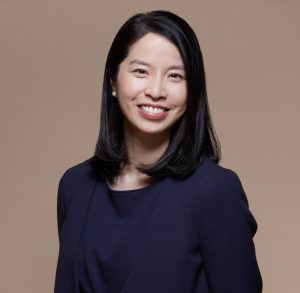
Prof. Esther Chan
Assistant Dean (Health Sciences Education), Teaching and Learning Sub-Deanery, LKS Faculty of Medicine, HKU
Professor Chan’s research focuses on determining the safety and effectiveness of medicines, and expanding knowledge about the application of medicines using big data and innovative study designs. Professor Chan has completed several multi-centre randomised controlled trials (RCT) comparing sedative and antipsychotic drugs for the management of behavioural emergencies. Her research findings have led to the inclusion of drug dosing recommendations in the Australian Therapeutic Guidelines and the addition of olanzapine to the Hong Kong Hospital Authority Accident and Emergency drug formulary. Findings from her latest multi-centre RCT were cited in the Hong Kong Hospital Authority Accident and Emergency Clinical Guidelines 2021 to support the use of intramuscular olanzapine in the management of acute agitation.
Professor Chan’s research has been published in leading journals including JAMA, JAMA Internal Medicine, Journal of the American College of Cardiology, Gastroenterology, Gut and Annals of Emergency Medicine. Her research is supported by funding bodies including the RGC Early Career Scheme (2013) and National Natural Science Fund of China (NSFC) – Young Scientist Fund (2018); and awards including the Faculty Outstanding Research Output Award (12 awards between 2012-2024) and the Outstanding Young Researcher Award in 2018. In 2020, she was awarded the NSFC Excellent Young Scientist Fund. Professor Chan’s research is featured in the HKU Growing Human Capital through the Strategically Oriented Research Themes (SORT), HKU Bulletin as well as Medical Faculty News. Her adaptation of RCT research methodology in both teaching and research is featured in Teaching and Learning Connections, Centre for the Enhancement of Teaching and Learning (CETL).
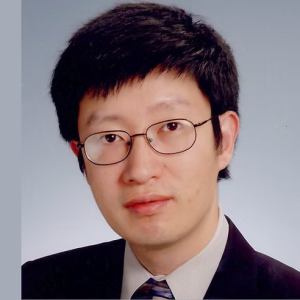
Prof. Nicholas X. Fang
Professor, Department of Mechanical Engineering,
HKU
Professor Nicholas X. Fang is currently the Professor of Mechanical Engineering at HKU. Professor Fang earned his B.S. and M.S. degrees in Physics from Nanjing University, China; and Ph.D. degree in Mechanical Engineering from the University of California at Los Angeles.
He was on the faculty of Mechanical Engineering at M.I.T. from 2011 to 2022, and as assistant professor of Mechanical Engineering at the University of Illinois at Urbana-Champaign from 2004 to 2010. Professor Fang teaches and conducts research in the area of micro/nanotechnology. Professor Fang’s research programs have focused on the scalable manufacturing processes for wave functional materials. While the main efforts focus on new insights of design for advanced manufacturing of wave functional material and devices, his group also actively pursue the applications in the areas of energy conversion, communication, and biomedical imaging. His research also leads to over 16 patent applications on nano- and micro-fabrication, additive manufacturing, and imaging technologies with successful technology transfer to industry (e.g. Osram, BASF, Nissan) and startups.
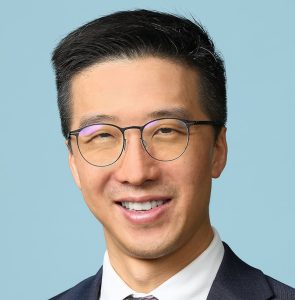
Prof. Seto Wai Kay, Walter
Simon KY Lee Professor in Gastroenterology, School of Clinical Medicine, LKS Faculty of Medicine, HKU
Prof. Wai-Kay Seto graduated from the University of Hong Kong in 2003 and received his Fellowship in Gastroenterology and Hepatology in 2010 from the Hong Kong College of Physicians. He received his Doctor of Medicine from the University of Hong Kong in 2012. He is currently the Simon KY Lee Professor in Gastroenterology in the Department of Medicine, and Principal Investigator of the State Key Laboratory of Liver Disease, the University of Hong Kong, Hong Kong. He is also the Chair of Division and Chief Physician in Gastroenterology of the University of Hong Kong-Shenzhen Hospital, Shenzhen, China; and Assistant Dean (Interdisciplinary Collaboration, Research Sub-Deanery), LKS Faculty of Medicine, The University of Hong Kong
Since 2020 Prof. Seto is ranked annually by Clarivate Analytics in the top 1% worldwide by research. He has published more than 310 international journal articles and book chapters, including leading-authored articles in the Lancet, Nature Reviews Gastroenterology & Hepatology, Journal of Clinical Oncology, Lancet Global Health, Journal of Hepatology, Gut, Hepatology, Clinical Infectious Diseases and npj Digital Medicine, majority related to research on chronic liver diseases. He has secured a total of over 30 million HKD in external competitive grant funding, has over 120 local, regional and international invited lectureships. He is a principal investigator of over 15 phase I-III international industry-sponsored clinical trials.
Prof. Seto has been awarded the American Gastroenterological Association Fellowship (2021); Sir David Todd Lectureship, Hong Kong College of Physicians (2019); the Asia-Pacific Digestive Week Emerging Leader from the APDW Federation (2018); Faculty Knowledge Exchange Award (2018), The University of Hong Kong; Guangdong Province Outstanding Young Medical Talent Award (2017); Outstanding Young Research Award (2016-2017) from The University of Hong Kong; and the Distinguished Young Fellow (2013) from the Hong Kong Academy of Medicine.
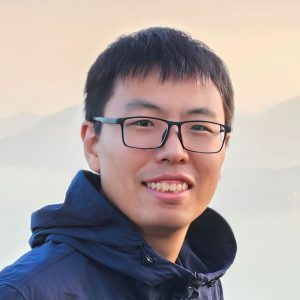
Prof. Qingpeng Zhang
Associate Professor,
HKU Musketeers Foundation Institute of Data Science and
Department of Pharmacology and Pharmacy,
HKU
Professor Qingpeng Zhang is an Associate Professor in the Musketeers Foundation Institute of Data Science and the Department of Pharmacology and Pharmacy at HKU. He received the B.S. degree in Automation from Huazhong University of Science and Technology in 2009, and the M.S. and the Ph.D. degrees in Systems and Industrial Engineering (minor in Management Information Systems) from the University of Arizona, in 2011 and 2012, respectively. Prior to joining HKU in 08/2023, he was an Associate Professor with the School of Data Science at The City University of Hong Kong (CityU). He previously worked as a Postdoctoral Research Associate in the Tetherless World Constellation, Department of Computer Science at Rensselaer Polytechnic Institute.
He is a Senior Member of IEEE, a Fellow of the Royal Society of Medicine, and an associate/academic editor for npj Digital Medicine, BMJ Mental Health, INFORMS Journal on Data Science, IEEE TITS, IEEE TCSS, Journal of Alzheimer’s Disease (2021), and PLoS ONE. He was a theme issue editor for Philosophical Transactions of the Royal Society A: Mathematical and Engineering Sciences and the guest editor for a number of other journals. He is on the executive committee of the International Society of Digital Health, Hong Kong Society of Behavior Health, Systems Engineering Society of China, and the Hospital IoT Branch of China Association of Medical Equipment.
His research interests include medical informatics, AI in drug discovery, healthcare data analytics and network science. His research has been published in leading journals such as Nature Human Behaviour, Nature Communications, PNAS, and MIS Quarterly, as well as featured in press such as The Washington Post, The New York Times, BBC, The Times, The Guardian and Ming Pao. He received The President’s Award (2022) and the Outstanding Research Award for Junior Faculty (2021) from CityU and the Andrew P. Sage Best Transactions Paper Award (2021) from IEEE Systems, Man, and Cybernetics Society.
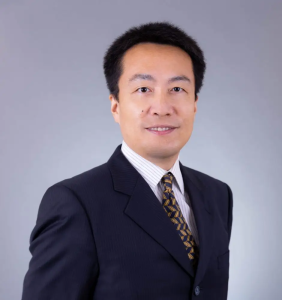
Prof. Yulin Fang
Professor of Innovation and Information Management and Director of the Institute of Digital Economy and Innovation (IDEI), HKU Business School
Yulin Fang is a Professor of Innovation and Information Management and Director of the Institute of Digital Economy and Innovation (IDEI) at HKU Business School. Before joining HKU, he was the Acting Head of the Department of Information Systems and Residence Master of Sir Gordon and Lady Ivy Wu Hall at City University of Hong Kong. His research interests include digital innovation, digital entrepreneurship, digital transformation, platform ecosystems, and e-commerce/social media.
Yulin has published over 70 research articles in renowned information systems and management journals, including MIS Quarterly (MISQ), Information Systems Research (ISR), Journal of Management Information Systems (JMIS), Journal of the Association for Information Systems (JAIS), Strategic Management Journal (SMJ), Journal of Management Studies (JMS), Organizational Research Methods (ORM), Journal of Operations Management (JOM), Production and Operations Management (POM), and Journal of Organizational Behavior (JOB) among others. His articles have been cited over 10000 times (Google citation) with an H-index of 44.
He has served as a Senior Editor of Information Systems Research, Information Systems Journal, Journal of Information Technology. He is the Co-Editor-in-Chief of Information Technology & People. He was an Associate Editor for MIS Quarterly and Information Systems Research in 2012-2016, and was awarded the Associate Editor of the Year (2015) for his editorial services to Information Systems Research. He has also regularly served as a track co-chair for International Conference on Information Systems (ICIS) and Pacific Asia Conference on Information Systems (PACIS) since 2013. He was a faculty advisor at ICIS Junior Faculty Consortium in 2020, at ICIS Mid-Career Faculty Consortium in 2018, and PACIS Junior Faculty Consortium in 2023.
Yulin has taught extensively at Undergraduate, MBA, EMBA and DBA levels. He has supervised many cross-cultural student consultant teams to deliver management/information systems/data analytics consulting projects to fast-growing firms in emerging, Internet-empowered industries.
Yulin practiced as a management consultant with Accenture and Arthur Anderson before pursuing a PhD. He was specialized in (e-)business strategy, marketing strategy and IT strategic planning. He also provided independent consultancy services on knowledge/Innovation management for Canadian Government and Alcatel Global.
As a professional case writer, Yulin has developed many business cases on digitally-savvy corporations operating in Asia, such as Huazhu, Volkswagen, Cathay Pacific, Ctrip, Uber, Alcatel China, Google China, Tencent, HK Stock Exchange, and HK Airport. His cases “Keda’s SAP Implementation” and “Google in China (B)” were best sellers at Ivey Business School Publishing and European Case Clearing House, respectively. Over 60,000 copies of his cases have been distributed worldwide.
Speakers
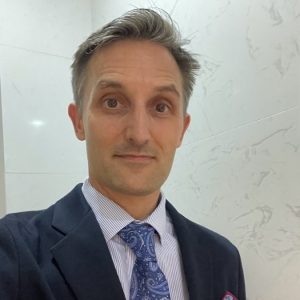
Lewis McFadyen
CTO, Director, Bloom Standard; Associate Director, Business Development, Hayco
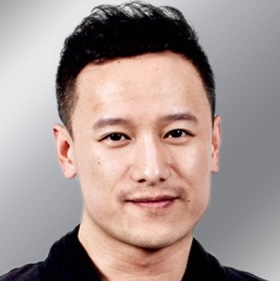
Phil Woo
Co-Founder, allcareAI
About the Topic
Digital health plays a crucial role in supporting longevity by empowering individuals to proactively manage their health, monitor their well-being, and access information and resources that promote healthy aging. Technologies like wearables, AI-powered platforms, and telemedicine are key to achieving this goal.
Here’s how digital health contributes to longevity:
- Preventative Care:
Digital tools help individuals track vital signs, activity levels, and other health metrics, allowing for early detection of potential issues and timely intervention. - Personalized Health Management:
AI algorithms can analyze vast datasets to provide customized recommendations for diet, exercise, and medication, optimizing health outcomes. - Remote Monitoring and Support: Telemedicine and remote health monitoring systems enable individuals to connect with healthcare professionals from anywhere, facilitating access to care and reducing the need for frequent hospital visits.
- Social Connection and Well-being: Digital platforms can combat social isolation by providing opportunities for online interaction and community engagement, contributing to mental well-being and overall quality of life.
- Enhanced Cognitive Function:
Digital games and educational apps can help maintain cognitive abilities, improve memory, and enhance problem-solving skills in older adults. - Accessible Healthcare: Digital technologies can make healthcare more accessible to those in remote areas or with mobility limitations, ensuring equitable access to care.
- Increased Awareness and Education: Digital channels provide a platform for disseminating health information, promoting healthy lifestyle choices, and empowering individuals to take ownership of their health.
- Reduced Costs and Improved Efficiency: Digital solutions can streamline healthcare processes, reduce administrative burden, and improve the efficiency of healthcare systems.
Specific examples could include wearable devices, AI-powered platforms, telemedicine, digital games and apps, smart homes, and mobile applications.
Program Highlights
- Skill Development and Personal Growth: Acquire essential skills in problem-solving and critical thinking, and cultivate a creative mindset that encourages experimentation and embraces uncertainty.
- Collaborate with Hong Kong students: Work in diverse teams to develop innovative solutions that can make a difference.
- Networking: Connect with like-minded peers, esteemed faculty from MIT and HKU, and industry experts.
- Showcase your ideas: Pitch your ideas to a panel of judges and receive constructive feedback.
Who May Apply?
Current undergraduate and graduate students in degree-bearing programs at MIT or HK. Preference will be given to Year 3, 4 and graduate students pursuing the following degrees:
HK – Nursing / Medicine / Biomedical Science / Biomedical Engineering
MIT – Biomedical Engineering / Computer Science / Health Sciences and Technology / Others
Application Timeline
MIT Students
- Applications open: May 21, 2025
- Applications close: June 13, 2025
- Interviews: On a rolling basis via ZOOM (only shortlisted applicants will be invited)
- Acceptance notifications: On a rolling basis. Accepted students must confirm their attendance within 48h.
- MIT Cohort Finalized: July 2025
HK Students
- Applications open: May 21, 2025
- Applications close: July 25, 2025
- Interviews: On a rolling basis via ZOOM (only shortlisted applicants will be invited)
- Acceptance notifications: On a rolling basis. Accepted students must confirm their attendance within 48h.
- HK Cohort Finalized: August 2025
Bootcamp Schedule
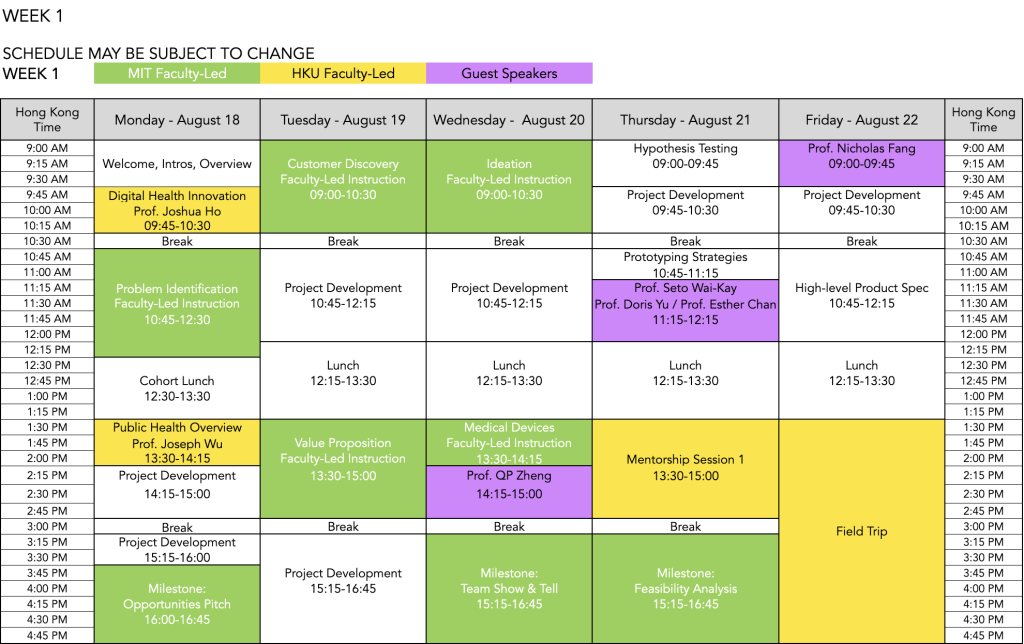
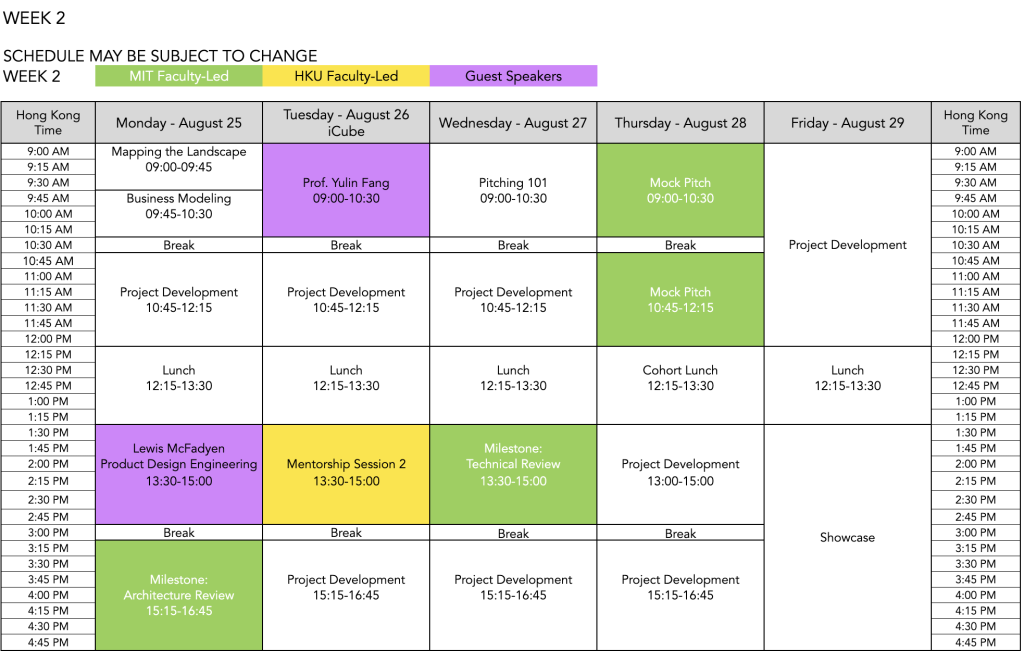
FAQ
CAN I WORK ON A PRE-EXISTING IDEA OR PROJECT?
No. Participants who come with preconceived ideas don’t get the full experience of the program, because their remade plans make the person less open to new input on what the market, customer, or teammates have to share with them. This program is designed to put the team before the idea — once the team is formed, then each team will collectively decide on what idea to work on.
HOW ARE TEAMS FORMED?
Teams will be formed by the Node Team before the bootcamp begins. We will create teams based on students’ skills, attributes and years of experience to ensure a diverse and well rounded mix of talents. Each team will include 1-2 MIT students and a few students from Hong Kong universities.
ARE THERE RESTRICTIONS ON THE PRODUCTS I CAN PROTOTYPE?
No restrictions. You can build a prototype that demonstrates how your solution solves the industry pain point. It is not required for the prototype to be a complete first step towards a new product – it can showcase the user experience of the new product, or show how a part of that product might work.
DO TEAMS GO ON TO BUILD A REAL STARTUP BASED ON THEIR WORK AT THE PROGRAM?
Our mission is to cultivate entrepreneurs, not build startups. Our entrepreneurship bootcamps are dedicated to delivering valuable learning experiences; we do not function as incubators or accelerators for startups. This supportive environment empowers participants to gain knowledge and skills without the pressures of immediate business development or funding.
If members of a team choose to carry the project forward and continue working on it, it is entirely up to them. As an example, we had one team that ended up incorporating and continuing to work on solving a problem that they first started solving at the bootcamp.
IF A STARTUP IS CREATED BASED ON MY WORK AT THIS PROGRAM, WILL I GET A SHARE OF THE EQUITY AND BE CONSIDERED A CO-FOUNDER?
No. Startup bootcamps at the MIT Hong Kong Innovation Node are educational programs with a strictly academic mission. As such, the project work completed during this program is considered a simulation. Working on a project in this program does not entitle any participant to make claims on a co-founder status, or their share of founder equity, regardless of their contribution during the program.
If your team (or part of it) decides to form a startup with your project, you should discuss who will/will not take part in the next phases, who will/will not be the co-founders, and what each person’s role, responsibility and contributions will include — founder equity conversations usually follow such ground work questions. Otherwise, just being a part of a team in this program does not entitle anyone retroactively to a share of the equity in a startup based on the team project. Your founder roles / responsibilities / equity discussions can start after the program concludes.
HOW DO I MAKE TRAVEL ARRANGEMENTS?
For accepted MIT students:
- Make your own economy flight arrangements based on our requirements (keep it within the reimbursable cap)
- Provide us with a proof of purchase / receipt or invoice (the “deposit” to secure your place in the program)
- Sean Gilbert from MISTI China will reimburse you up to the reimbursement cap upon successful completion of the program. The reimbursements will be made roughly two weeks after the program.
DO I NEED TRAVEL INSURANCE?
MIT students are covered by International SOS for emergency assistance while traveling abroad.
